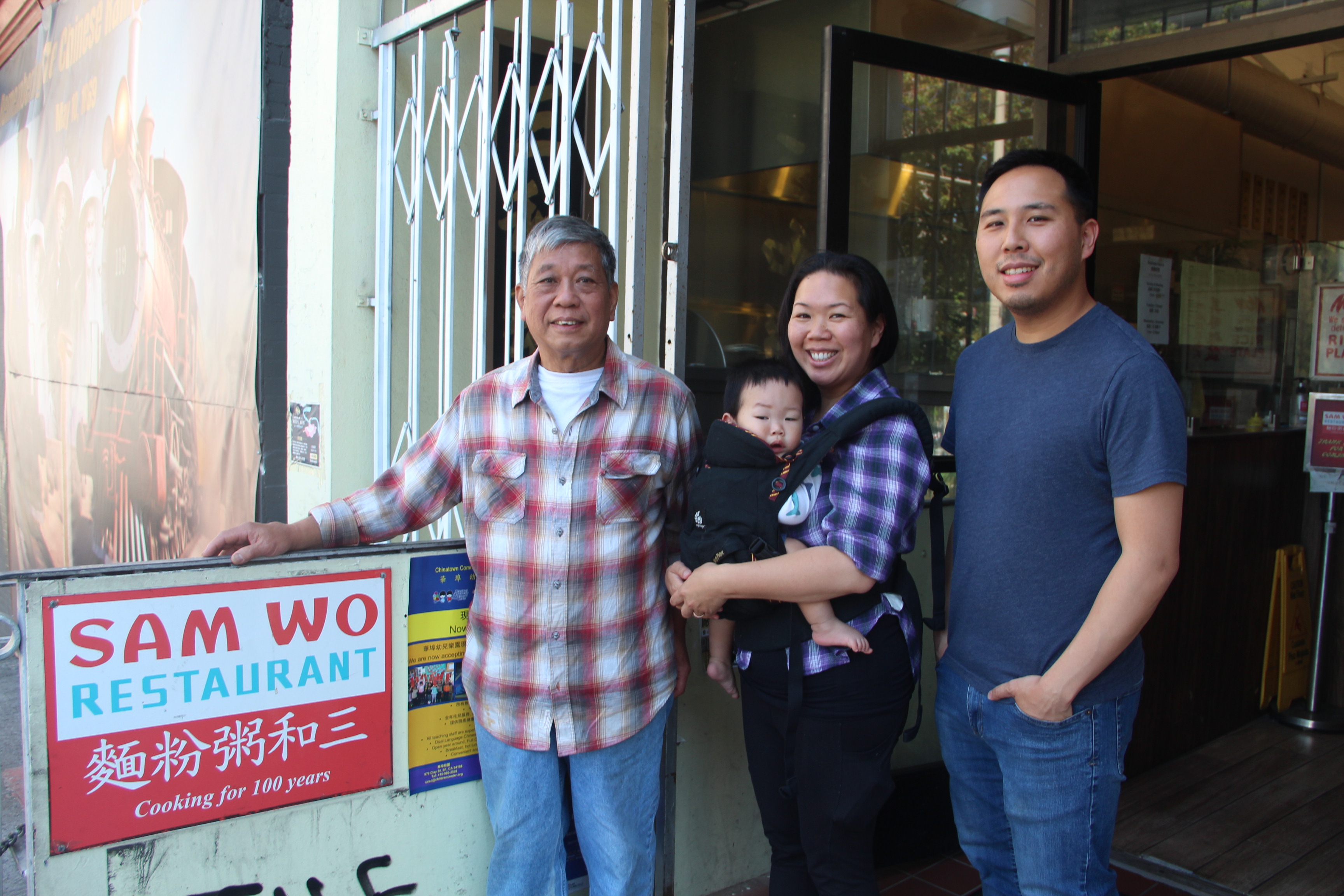Some 42 years after David Jitong Ho stepped into Sam Wo, a legendary restaurant in San Francisco’s Chinatown, he has made up his mind to quit.
“If I tell you I can continue to work, I am lying to you,” the 68-year-old told The Standard in Cantonese. “My body cannot sustain the physical demands anymore.”
The restaurant is known for its affordable prices, as well as for being featured in a Conan O’Brien sketch and for being the home of San Francisco’s “rudest waiter,” Edsel.
A glamorous Chinatown institution for over a century, it closed in 2012 after a spate of safety concerns and health code violations, and later reopened a block away in 2015.
Until the pandemic hit, Sam Wo had been a famed destination for hungry late-night guests feasting on Singapore-style stir-fried noodles and the rice porridge known as jook.
No matter how beloved a restaurant might be, keeping one open is a grind.
Ho is exhausted, and his two children—both America-born Chinese—have chosen not to follow their father into the family business. The family is now hoping new owners enter the picture by January 2025, when the current lease expires.
If no new investors are found, Sam Wo may close forever.
The Ho Family
Ho immigrated to the U.S. in 1981, and his first job was at Sam Wo, which his grandfather owned in those days. The elder man sponsored Ho’s immigration to San Francisco so Ho could work in the restaurant.
In 1986, Ho’s grandfather died, and he took over as chef-owner. Like many other immigrant businesspeople, the family devoted decades of their lives to the business.
“I don’t know what the outside world looks like, because I spent more than 10 hours a day at the restaurant,” Ho said, tears in his eyes. “All because I don’t have a good educational background.”
He said that Chinese culture emphasizes respecting elders, so he felt obliged to do as his grandfather wanted. But Ho refused to push his own American-born children to follow in his footsteps.
Julie and Jason Ho, his daughter and son, nonetheless grew up at Sam Wo. They told the Standard that they each enjoyed helping out since they were teenagers, interacting with guests and serving different generations of regulars.
“I feel sad,” said Julie, a nurse and mother of two. “It’s a huge part of my life. So it’s very hard for me to let it go.”
Still, she mentioned that she didn’t get to spend quality time with her father while growing up because her father was at the restaurant all the time, and she didn’t want that for her own children. And Jason Ho’s passion is law enforcement, not toiling in the kitchen. The siblings agreed that the physical and mental demands that such a business requires are something they can’t handle.
“My college experience was like: working, going to school, working, going to school,” Jason said.
What Will Happen to Sam Wo?
Steven Lee, an investor and co-founder of the new Sam Wo, said the ownership team can’t sign long-term leases with the landlord until they find a younger family willing to take the business on.
The landlord is Yin Ping Association, a small family operation based in Chinatown. According to Lee, they can extend the lease month-to-month.
Lee and other investors don’t manage Sam Wo’s day-to-day operations. He said they spent a lot of effort to restart the place, and it’s a shame to see it go—not only because of the Ho family’s departure but also due to rising costs, a still-empty Downtown and a labor shortage.
“We have to face the sad truth and reality,” Lee said. “The city has to face this situation, too.”
Lee said that if Sam Wo closes in a little over a year, they may still keep the trademark—but they’ll auction off many of the restaurant’s historic items, like the sign and the old photos. He’s looking to create a recipe book of Sam Wo’s signature dishes, like the barbecue pork noodle roll, braised beef noodle soup and duck fried rice.
For Ho’s part, he’s not sad.
“This is life, and we have to deal with it,” he said. “Do whatever you want when you are young.”
